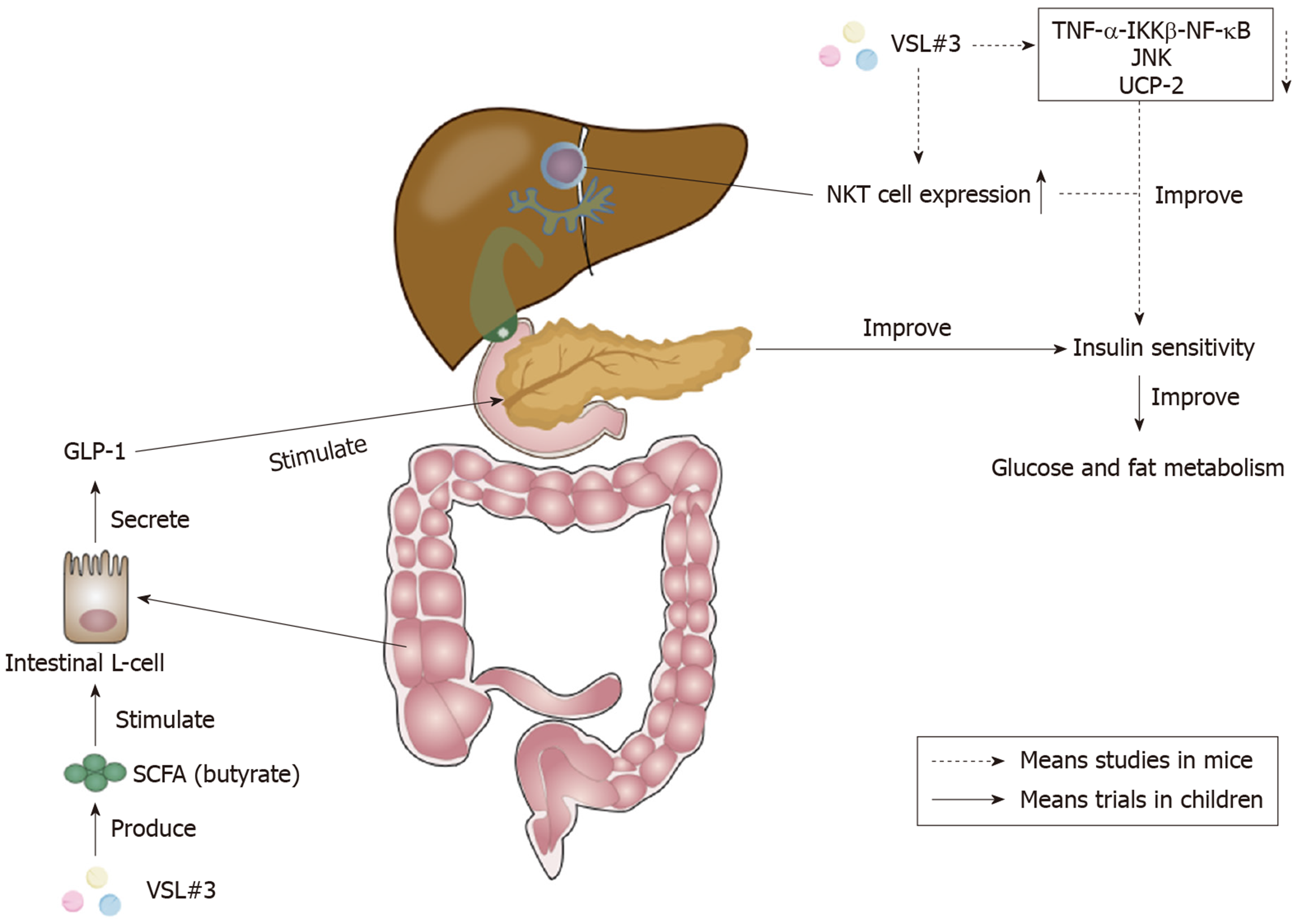Copyright
©The Author(s) 2020.
World J Clin Cases. Apr 26, 2020; 8(8): 1361-1384
Published online Apr 26, 2020. doi: 10.12998/wjcc.v8.i8.1361
Published online Apr 26, 2020. doi: 10.12998/wjcc.v8.i8.1361
Figure 3 Effects of VSL#3 on insulin sensitivity.
The increase of short-chain fatty acid (SCFA) butyrate caused by VSL#3 is able to stimulate the secretion of glucagon-like peptide 1 (GLP-1) from intestinal L-cells[112]. GLP-1 can stimulate the pancreas and ameliorate insulin sensitivity to improve glucose and fat metabolism[110]. Furthermore, VSL#3 can improve hepatic insulin resistance by reducing tumor necrosis factor-α (TNF-α)-IκB kinase β (IKKβ)-nuclear factor-κB (NF-κB) pathway, the activity of TNF-regulated kinase Jun N-terminal kinase (JNK), and uncoupling protein-2[113-115]. The increase of hepatic natural kill T (NKT) cells caused by VSL#3 also plays a significant role in the improvement of hepatic insulin sensitivity[117,118]. SCFA: Short-chain fatty acid; GLP-1: Glucagon-like peptide 1; TNF-α: Tumor necrosis factor-α; IKKβ: IκB kinase β; NF-κB: Nuclear factor-κB; JNK: Jun N-terminal kinase; UCP-2: Uncoupling protein-2; NKT: Natural kill T.
- Citation: Cheng FS, Pan D, Chang B, Jiang M, Sang LX. Probiotic mixture VSL#3: An overview of basic and clinical studies in chronic diseases. World J Clin Cases 2020; 8(8): 1361-1384
- URL: https://www.wjgnet.com/2307-8960/full/v8/i8/1361.htm
- DOI: https://dx.doi.org/10.12998/wjcc.v8.i8.1361









